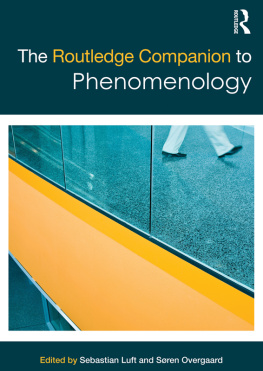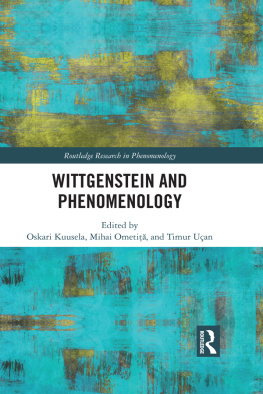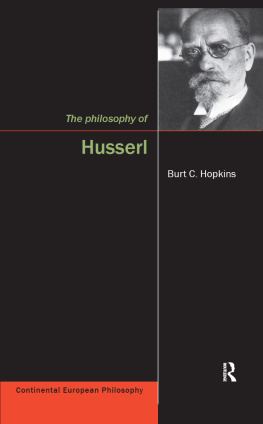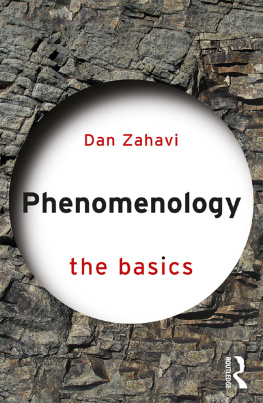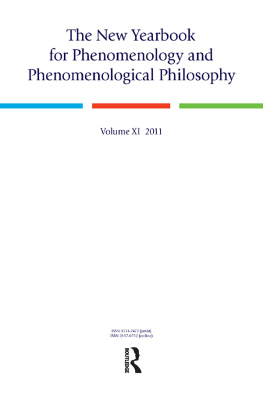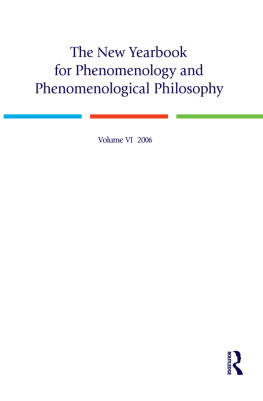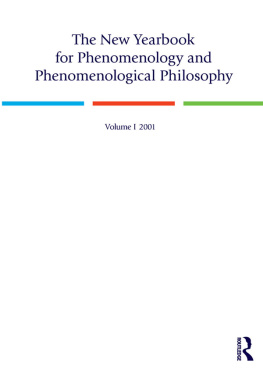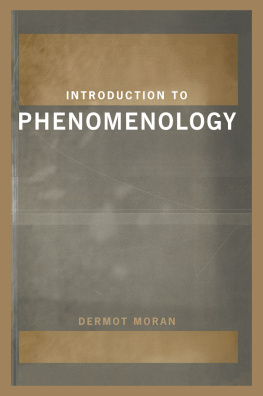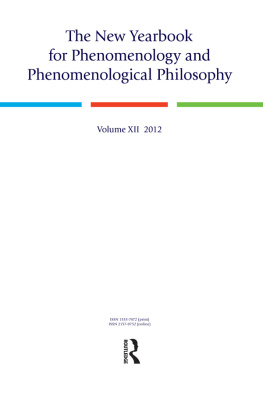David Detmer - Phenomenology Explained: From Experience to Insight
Here you can read online David Detmer - Phenomenology Explained: From Experience to Insight full text of the book (entire story) in english for free. Download pdf and epub, get meaning, cover and reviews about this ebook. year: 2013, publisher: Open Court, genre: Religion. Description of the work, (preface) as well as reviews are available. Best literature library LitArk.com created for fans of good reading and offers a wide selection of genres:
Romance novel
Science fiction
Adventure
Detective
Science
History
Home and family
Prose
Art
Politics
Computer
Non-fiction
Religion
Business
Children
Humor
Choose a favorite category and find really read worthwhile books. Enjoy immersion in the world of imagination, feel the emotions of the characters or learn something new for yourself, make an fascinating discovery.

- Book:Phenomenology Explained: From Experience to Insight
- Author:
- Publisher:Open Court
- Genre:
- Year:2013
- Rating:3 / 5
- Favourites:Add to favourites
- Your mark:
Phenomenology Explained: From Experience to Insight: summary, description and annotation
We offer to read an annotation, description, summary or preface (depends on what the author of the book "Phenomenology Explained: From Experience to Insight" wrote himself). If you haven't found the necessary information about the book — write in the comments, we will try to find it.
In the English-speaking world, where analytic philosophy dominates, phenomenology has recently emerged as a hot topic after decades of neglect. This has resulted from a dramatic upswing in interest in consciousness, the condition that makes all experience possible. Since the special significance of phenomenology is that it investigates consciousness, analytic philosophers have begun to turn to it as an underutilized resource. For the same reason, Husserls work is now widely studied by cognitive scientists.
The current revival of interest in phenomenology also stems from the recognition that not every kind of question can be approached by means of experimental techniques. Not all questions are scientific in that sense. Thus, if there is to be knowledge in logic, mathematics, ethics, political philosophy, aesthetics, epistemology (theory of knowledge), psychology (from the inside), and the study of consciousness, among others, another method is clearly needed. Phenomenology is an attempt to rectify this. Its aim is to focus on the world as given in experience, and to describe it with unprecedented care, rigor, subtlety, and completeness. This applies not only to the objects of sense experience, but to all phenomena: moral, aesthetic, political, mathematical, and so forth. One can avoid the obscure problem of the real, independent existence of the objects of experience in these domains by focusing instead on the objects, as experienced, themselves, along with the acts of consciousness which disclose them.
Phenomenology thus opens up an entirely new field of investigation, never previously explored. Rather than assuming, or trying to discern, what exists outside the realm of the mental, and what causal relations pertain to these extra-mental entities, we can study objects strictly as they are given, that is, as they appear to us in experience.
This book explains what phenomenology is and why it is important. It focuses primarily on the works and ideas of Husserl, but also discusses important later thinkers, giving special emphasis to those whose contributions are most relevant to contemporary concerns. Finally, while Husserls greatest contributions were to the philosophical foundations of logic, mathematics, knowledge, and science, this book also addresses extensively the relatively neglected contribution of phenomenology to value theory, especially ethics, political philosophy, and aesthetics.
David Detmer: author's other books
Who wrote Phenomenology Explained: From Experience to Insight? Find out the surname, the name of the author of the book and a list of all author's works by series.


